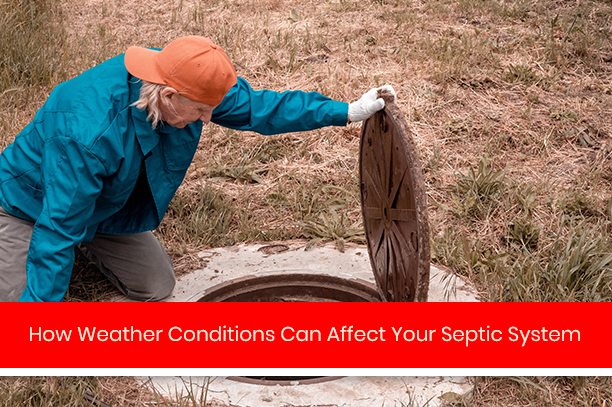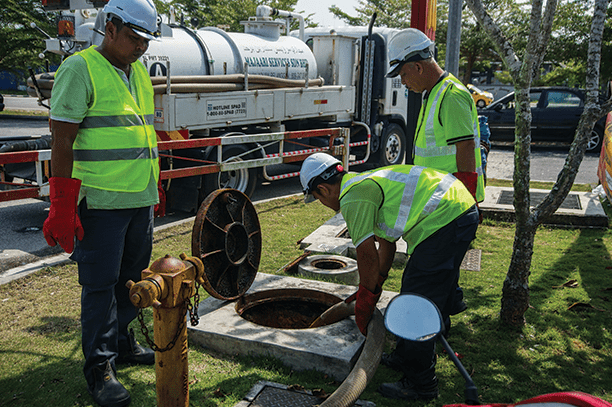Most homeowners consider their septic systems to be mysterious. They know that it is where domestic rubbish is dumped. When it comes to septic system maintenance, the myths around them can impair someone’s judgment. Because of this, we wanted to set the record straight and debunk some common myths about septic tanks that seem to be circulating the lot.
Septic Tank Could Last a Lifetime with Proper Maintenance.
According to some, septic tanks can last a lifetime with proper maintenance, but others claim that one should replace them at least every 20 years. Most often, the middle ground represents the truth.
No matter how well you maintain your septic system, the tank will eventually need to be replaced. After five years of use, the system can fail a little due to poor management. However, your septic system may still function after 20 to 30 years with routine tank pump-outs, efficient water use, proper waste disposal, and attentive drain maintenance.
Septic Tank Additives can Eliminate the need for Pumping.
You may have heard that septic tank additives can make this procedure unnecessary. They are not even advised for use. The idea is that by adding these bacteria and enzymes to your septic tank, you may facilitate the thorough digestion and breakdown of sewage waste. They may prevent solids from settling, cause tank walls to erode, or leak dangerous chemicals into the drain field.
Stick to routine pump-outs and avoid attempting to perform them yourself if you suddenly don’t want wastewater to back into your home. Strict guidelines established by local authorities govern the handling and disposal of solid waste.
Repairing a Tank Is Preferable to Pumping Out
You could believe it won’t matter if you put off obtaining a planned pump-out on your septic tank if you’ve had a difficult few months financially. After all, how costly could the fixes be in the event of a problem?
Septic tanks typically only cost a few hundred dollars to pump, but a backed-up system could result in unpleasant, unclean issues that are more expensive to solve. An average tank repair can set you back around $1,700.
If you notice odors coming from your drains or your toilet stops flushing, this may be a sign that harm has already been done. You could occasionally need to replace the tank, in which case you should contact a nearby professional septic tank cleaning company. Septic tank replacement typically costs $6,000 on average.
Clogged System’s only option is to replace the tank.
You might have heard that replacing the tank or the complete system is the only solution if your system becomes blocked. However, a pressure-washing method called jetting can frequently clear the system so that it continues to operate normally, depending on where and why the clogged system has arisen. Incorrect use of this approach may result in groundwater quality issues and pipeline damage. High-pressure water is sent through your sewage systems to remove the material. You can’t use this method to clear large obstructions or issues with the system pipelines, and it isn’t appropriate if your pipes are constructed of clay, which is more brittle than hard PVC. To obtain more information, speak with a nearby expert in septic tank repairs. They employ specialized tools.
It’s Acceptable to Build on top of a Septic Tank.
Some individuals think there is no issue with constructing a building on top of the septic tank. They should be unaffected since they are so deep underground.
When a septic tank has to be pumped, repaired, or replaced, adding a deck, patio, or garden shed on top may make it difficult or impossible for professionals to access the tank. Additionally, it may contribute to issues with wastewater breakdown once it enters the drainage field. There won’t be sufficient oxygen in the soil, which can cause system backups. The ideal approach is cultivating a lawn or putting non-aggressive, water-loving plants over your septic system.
You can Flush Down anything to the Septic Tank.
A balance of biological bacteria and enzymes is necessary to break down the waste put into a septic tank. The risk of system failure rises when substances like drain cleaners, disinfectants, and solvents are flushed down and reduce or remove the bacteria that break down sewage.
Wastewater and sewage are the only two things that one should ideally put into a septic system. For instance, one cup of household bleach can eliminate all beneficial microorganisms in a 1,000-gallon septic tank. These bacteria will eventually repopulate, but not before some sewage remains undigested. Coffee grounds are yet another item to avoid, despite popular belief. They can enter your leaching bed and cause system failure since they are not easily digested.
Seeding is Beneficial for Septic Tank
Assist in breaking down the waste; seeding establishes healthy bacterial growth in a system that has just been pumped. Some individuals advise flushing a pound of yeast, some manure, or even some dead pests down the toilet to do this. We are happy to tell you that this is completely unneeded. Regular toilet waste alone is enough to provide the helpful bacteria required to get the system going as soon as you flush it away.
You Need Many Septic Tanks
With the right care, a septic tank can survive up to 25 years. As a result, you might only require one tank throughout that time. It is inefficient to construct numerous septic tanks at once. There is no need for many because a septic tank won’t fill up in a few months.
If you have established or are planning to install a septic system, it is recommended to consult experts for advice on septic tank maintenance. Experts will not give you false information because they know about septic tanks.
Septic tanks are compatible with Garbage Disposals.
With a septic tank, the garbage disposal is possible; be careful what you dump down the drain. Grease, coffee grounds, and eggshells shouldn’t be dumped down the disposal since they might block the tank and lead to issues. You’re good to go aside from that.
Conclusion
Every home needs a septic system that is operating properly. Many homeowners still fail to perform the necessary upkeep, though. Without proper maintenance, septic systems can cause significant issues and become a health risk by lowering your water quality.
It’s crucial to understand how to maintain your septic system correctly. Please don’t hesitate to contact the experts at AOS Septic if you have any additional inquiries.






